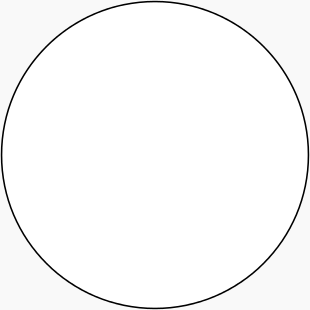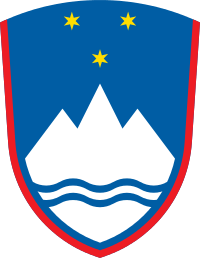Religion in Slovenia
| Part of a series on |
| Slovenes |
|---|
 |
| Diaspora by country |
|
Argentina · Austria Australia · Canada Hungary · Italy United States |
| Culture of Slovenia |
|
Literature · Music · Art Cinema · Names · Cuisine Dances · Costume · Sport |
| Religion |
|
Roman Catholicism Protestantism |
| Languages and dialects |
|
Slovene (Prekmurje Slovene · Resian) |
| History of Slovenia |
| Part of a series on |
| Slovenes |
|---|
 |
| Diaspora by country |
|
Argentina · Austria Australia · Canada Hungary · Italy United States |
| Culture of Slovenia |
|
Literature · Music · Art Cinema · Names · Cuisine Dances · Costume · Sport |
| Religion |
|
Roman Catholicism Protestantism |
| Languages and dialects |
|
Slovene (Prekmurje Slovene · Resian) |
| History of Slovenia |
Religion in Slovenia is predominantly Christianity, with Roman Catholicism being the largest Christian denomination in the country. According to 2002 census, adherents of Christianity represented 60.9% of the total population of Slovenia. Besides Catholicism, other Christian religions having significant following in the country include Eastern Orthodoxy and Protestantism (Lutheranism). Islam (2.4%), Judaism and Hinduism are small minorities in Slovenia. A significant part of the population is not religious (atheists and agnostics representing about 35% of the population).
Religion played a significant role in the development of the Slovene nation and the country of Slovenia. After centuries-long tradition of a state church, interrupted by the periods of Protestant Reformation in the 16th century and post-World War II socialism ousting religion from the public life, a degree of separation of the state and the church has been reached in the independent Slovenia. There is, however, some legislative bias in favour of the Roman Catholic Church.
Christianity
Roman Catholicism
The Roman Catholic Church in Slovenia is part of the worldwide Roman Catholic Church, under the spiritual leadership of the Pope in Rome.
There are around 1,195,000 Catholics in the country (about 57.8% of the total population as per the 2002 Census). The country is divided into six dioceses, including two archdioceses. The diocese of Maribor was elevated to an archdiocese by Pope Benedict XVI in 2006. Additionally, the pope created three new sees, namely Novo Mesto, Celje and Murska Sobota.
Archbishop Juliusz Janusz, 66, is the Apostolic Nuncio to Slovenia and the Apostolic Delegate to Kosovo.
Others
Protestantism has a long history in Slovenia, with the reformation movement being strong in the 16th century. Today, most Protestants live in the Prekmurje region.[2] Eastern Orthodoxy maintains a significant presence in the country and is practised mainly by ethnic Serb population.
Islam
The Muslims in Slovenia are ethnically mostly Bosniaks and other Slavic Muslims.[3] In 2014, there were 48,266 Muslims in Slovenia, making up about 2.4 percent of the total population.[4] The Muslim community of Slovenia is headed by Nedžad Grabus.[5]
Judaism
The small Jewish community of Slovenia (Slovene: Judovska skupnost Slovenije) is estimated at 400 to 600 members, with the Jewish community of Slovenia suggesting 500 to 1000 members. Around 130 are officially registered,[6] most of whom live in the capital, Ljubljana. The Jewish community was devastated by the Shoah, and has never fully recovered. Until 2003, Ljubljana was the only European capital city without a Jewish place of worship.[7]
Religious landscape
Religiosity of Slovene citizens according to population censuses 1991 and 2002.[1]
| Religion | 1991 (%) | 2002 (%) |
|---|---|---|
| Catholic | 71.6 | 57.8 |
| Lutheran | 0.9 | 0.8 |
| Orthodox | 2.4 | 2.3 |
| Other religions | 0.0 | 0.2 |
| Islam | 1.5 | 2.4 |
| Believer, no religion | 0.2 | 3.5 |
| Atheist | 4.4 | 10.2 |
| Refused to answer | 4.3 | 15.7 |
| Unknown | 14.6 | 7.1 |
Legislation
In February 2007 a new Religious Freedom Act was passed in Slovenia, with a bias towards the Roman Catholic Church, particularly in regard to state funding and the strict terms for the registration of new religious communities.[1]
See also
- Roman Catholicism in Slovenia
- Protestantism in Slovenia
- Islam in Slovenia
- Hinduism in Slovenia
- History of the Jews in Slovenia
- Demographics of Slovenia
References
- 1 2 3 Črnič, Aleš; Komel, Mirt; Smrke, Marjan; Šabec, Ksenija; Vovk, Tina (2013). "Religious Pluralisation in Slovenia". Teorija in praksa. University of Ljubljana, Faculty of Sociology, Political Sciences and Journalism. 50 (1): 205–232, 264. ISSN 0040-3598. COBISS 31869277.
- ↑ http://www.evang-cerkev.si/kategorija-zgodovina/
- ↑ Bajt, Veronika (2011). "The Muslim Other in Slovenia. Intersection of a Religious and Ethnic Minority". In Górak-Sosnowska, Katarzyna. Muslims in Poland and Eastern Europe: Widening the European Discourse on Islam. University of Warsaw Press. p. 307–326. ISBN 9788390322957.
- ↑ "Muslim Population by Country: S - T". Ministry of Hajj Kingdom of Saudi Arabia. Retrieved 17 April 2014.
- ↑ "Predsednik Mešihata – Mufti Nedžad Grabus" [The President of Meshihat – Mufti Nedžad Grabus] (in Slovenian). Retrieved 9 June 2015.
- ↑ http://www.zurnal24.si/judje-zakljucujejo-s-praznovanjem-hanuke-clanek-144186
- ↑ Jewish Virtual Library - Slovenia



